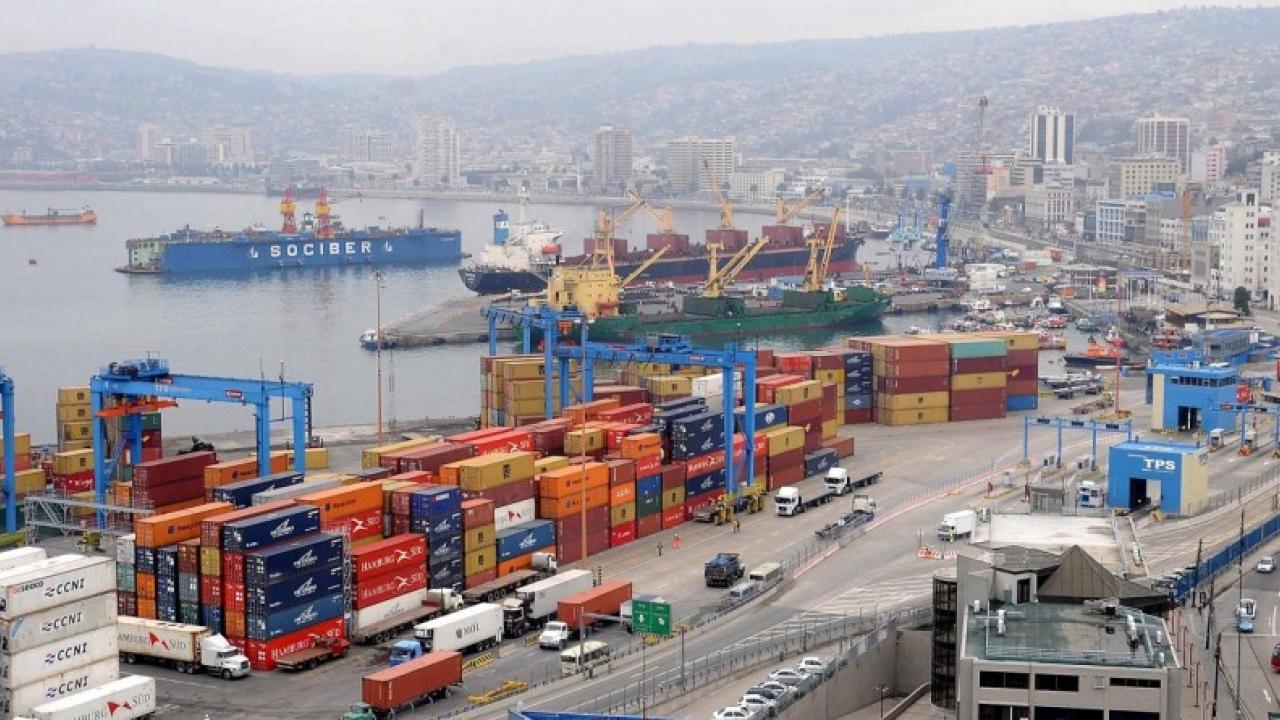
In sectors such as fruits, vegetables and minerals, Chile would face less competition due to taxes on its main competitors.
In line with his campaign promises, US President Donald Trump announced the application of tariffs and restrictions that have hit China hard and will soon also affect Mexico and Canada.
For example, additional tariffs of 10% were imposed on products from the Asian giant, and the US responded with 10% to 15% on certain products imported from the US, which will come into effect on February 10.
Beijing has hit back at Trump with targeted tariffs on products such as oil, liquefied gas, machinery and large-capacity cars, as well as launching an investigation into Google and announcing export controls on critical minerals.
And in the midst of all this trade conflict, the United States Postal Service (USPS) announced that it will temporarily stop accepting packages from China and Hong Kong.
TRUMP'S MEASURES AND THEIR IMPLICATIONS FOR CHILE
What implications will this scenario have for Chile? The first thing that is on the horizon is uncertainty regarding the Free Trade Agreement (FTA) with the United States, since Trump's protectionist approach could lead to revising that agreement or even introducing new trade barriers.
If this were to happen, it would directly affect key sectors such as agriculture and mining, which are essential for the development of our economy and local employment.
But in the immediate future, Ignacio Mieres, head of analysis at XTB Latam, pointed out that in the region Mexico and Canada could lose competitive advantages in the US market, which would open up “opportunities for Chile.”
In sectors such as fruits, vegetables and minerals, Chile would face less competition due to taxes on its main competitors.
“Mexico supplies 40% of the fruits and 50% of the vegetables consumed in the US, so these tariffs could allow Chilean exporters to increase their participation in this market,” said the expert.
In addition, regarding the copper and lithium sectors, which are essential for the automotive and technology industries, he said that “Chile could strengthen its presence in the US if China sees its exports reduced due to trade barriers.”
WHAT DOES CHILE LOSE AND WHAT DOES IT GAIN?
According to the head of analysis at XTB Latam, with Trump's tariff measures against certain markets, our country "gains broader access to the US market, especially in agricultural and mineral products, due to the lower competitiveness of Mexico, Canada and China."
According to his estimation, the increase in the price of products manufactured in the US "could encourage demand for Chilean goods as a more affordable alternative."
In the same context, Mieres indicated that as a result of the reprisals, consumption and investment in the United States could decrease; and therefore “global economic stability could be lost, with a possible contraction of the GDP of 1.2% and an increase in inflation of 0.7%.”
But the expert countered that "if the trade crisis worsens, global trade could become more unstable, affecting exporters like Chile, which depend on a predictable economic environment to maintain their growth."
COPPER
Returning to the local level, in conversation with Biobío Chile , senior economist at the OCEC of the Diego Portales University, Juan Ortiz, said that the measures announced by Trump are expectations that he must meet due to his political campaign, but "they undoubtedly generate uncertainty and volatility in the market."
He recalled that the United States is Chile's second largest trading partner, followed by China.
Therefore, if China and the US enter into a new trade war, this will undoubtedly have repercussions for the local economy and copper.
"In the event of a decline in copper prices due to the imposition of tariffs, this could trigger pressure on the exchange rate (the dollar) and cause it to once again exceed the $1,000 barrier," he exemplified.
The president of the Confederation of Production and Commerce (CPC), Susana Jiménez, said that she is concerned about a possible tariff on copper. “That would have important repercussions, as would any type of protectionist measures, which could affect the future of these economies that are so important for the country,” she said.
According to a report by the Undersecretariat of International Economic Relations (Subrei), copper accounted for 50.8% of Chile's total exports in 2024. Concentrated shipments amounted to US$ 31,551 million, an increase of 30.1% compared to 2023.
In turn, the United States Geological Survey (USGS) indicated that the country's refined copper imports amounted to 890 thousand tons, of which Chile contributed 570 thousand, or 64%.
In 2024, Chilean services will also be directed to 131 destinations around the world. Among the main markets, the United States stands out, with operations worth US$ 953.7 million.
Foreign Minister Alberto Van Klaveren confirmed a few days ago the creation of a “working group” within the Subrei and the Ministry of Finance in response to a possible increase in tariffs on copper and other metals.
The idea behind this, he explained, is to "analyze the main trade flows between Chile and the United States and be able to evaluate to what extent these flows could be affected."
Regarding the relationship with the United States, the Secretary of State pointed out that the North American country exports more to Chile than we send to that country. “We believe that the relationship is very positive from a commercial point of view,” he said.









